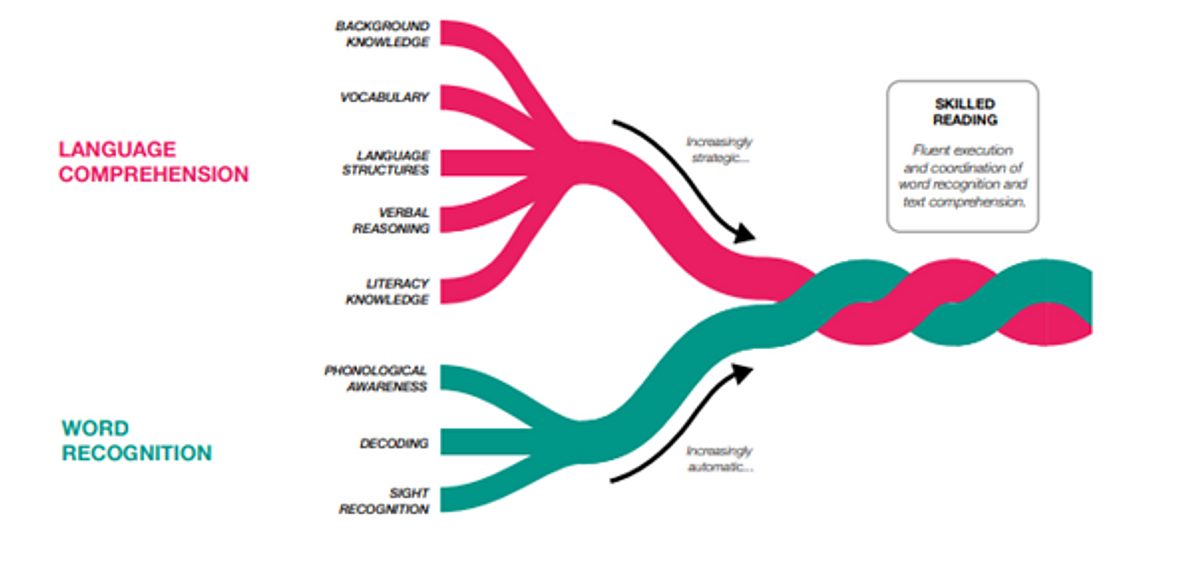
NEW EDITION OF EEF GUIDANCE ON EFFECTIVE IMPLEMENTATION
This fantastic resource supports all school leaders to implement change effectively

Share on:

by Staffordshire Research School
on the
Eton Park Junior is a purpose-built school for students between the ages of 7 and 11 located in Burton on Trent. Eton Park has 59% pupils who are EAL and 26% pupils who are PP. At Eton Park, staff are determined that no child is left behind. Each individual is given the support and guidance to enable them to develop the skills and acquire the knowledge that will prepare them for the next stage of their school career. Eton Park Junior School is part of The de Ferrers Trust and shares the vision and values: Work Hard, Be Kind, Choose Wisely.
Here at Eton Park Junior School we are, much like other schools up and down the country, focusing our efforts on developing Reading and sustaining and further embedding a Reading Culture. As part of our drive to improve reading and reading for pleasure, we are training our teachers and children in Reading Prosody: “When good readers read aloud, it sounds like music.” (Schwanenflugel and Flanagan Knapp, 2017, The Music of Reading Aloud.) We know that “Reading expressively matters in the development of reading…” and have begun our journey to improve this. Existing research tells us that “Prosody in speech is one way to increase the salience and importance of some ideas over others. Expressive reading does the same thing…” (Schwanenflugel and Flanagan Knapp, 2017, The Music of Reading Aloud.) The Recommendation 2 (Support pupils to develop fluent reading capabilities) and Recommendation 3 (Teach reading comprehension strategies through modelling and supported practice), from the EEF’s Improving Literacy in Key Stage 2 Guidance Report, underpin our strategies and all of our interventions aimed at increasing reading prosody within our students.
Scarborough’s Reading Rope explores the two main strands required for children to learn to co-ordinate the different components of reading: word recognition and language comprehension. In order to be classed as fluent readers, children need to “read quickly, accurately, and with appropriate stress and intonation.” (EEF Improving Literacy in KS2 Report.) Furthermore, once a child can be considered a fluent reader the development of their comprehension skills is likely to follow “because pupils’ limited cognitive resources are freed from focusing on word recognition and can be redirected towards comprehending the text.” (Wanson, H. and O’Connor, R. (2009) ‘The role of working memory and fluency practice on the reading comprehension of students who are dysfluent readers’)

The Herts for Learning KS2 Reading Fluency Project model aims to address the fact that a number of children are “far from fluent: their reading sounded choppy; robotic and monotonous. In addition, they had a disregard for punctuation, and they lacked the ability to monitor comprehension as they read (indicated by the fact that they often mis-read words, or at times completely missed out words – or whole lines of text – without realising and self-correcting).” (https://www.hertsforlearning.co.uk/blog/early-findings-ks2-reading-fluency-project)
Like anything, our children need to experience first-hand what fluent reading sounds (and feels) like. The project not only models fluent reading but also incorporates opportunities for echo reading, re-reading and performance readings. However, it is imperative to note that prosody reading is far more than simply reading aloud; reading aloud is crucial in developing a love of language and reading amongst our pupils, but does not always support the development of comprehension as effectively as prosody reading does. Echo reading (where a child has the opportunity to echo and hear the words on the page spoken by their own voice following modelling by an ‘expert’ reader) and Prosody reading interventions “allowed for better comprehension, compared to when the text was simply read aloud to the children.” (https://www.hertsforlearning.co.uk/blog/early-findings-ks2-reading-fluency-project)
We know that Echo reading, Choral Reading and Prosody reading strategies have implications for improving reading fluency in both fiction and non-fiction texts. Once pupils have gained these skills they can later (and independently) apply these skills successfully to their reading of ‘cold’ texts: “when students read the same passage multiple times, their rate and accuracy levels increased. Interestingly, as students performed this exercise over time, using multiple texts, their initial scores using cold (unread) passages also improved.” (Samuels, S (1979) The method of repeated reading. The Reading Teacher Journal.)
Echo reading, Choral Reading and Prosody reading strategies have implications for improving reading fluency in both fiction and non-fiction texts
What does this look like in our day to day practice?
We are excited to continue trialling our Guided Prosody intervention groups focusing on: modelled expert prosody; echo reading, performance reading and text marking for meaning, via running two sessions a week (twenty minutes long), for eight weeks and assessing the impact.
Katie Pattinson – Trust Leader: School Improvement Projects and Educational Research, The de Ferrers Trust, Burton on Trent, Staffordshire
Further reading:

This fantastic resource supports all school leaders to implement change effectively

We explore the key components of effective learning behaviours, their importance, and how they can be fostered in schools.

Blog -
A Brave New World?
This website collects a number of cookies from its users for improving your overall experience of the site.Read more